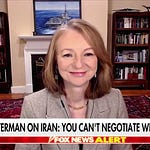FACTS
Tesla EVs have better AI than ANY military aircraft
Your Roomba has better autonomy than most of the Pentagon's weapons systems
Your Snapchat filters rely on better computer vision than our most advanced military sensors
Why is this so?
How did this come about?
The military equipment of today is being built by a small group of large corporations that exhibit a low level of innovation and have limited, if any, channels of communication with the country's brightest innovative and technological minds.
A Shift In Production Strategy Is Needed Now - Palmer Has Already Initiated It
AI in warfare is no longer hypothetical; it’s inevitable, says Palmer Luckey, an inventor and founder of the defense technology company Anduril Industries.
He takes us inside the high-tech arms race to build AI-powered weapons, “killer robots” and autonomous fighter jets at scale - and makes the counterintuitive case for why this may be the surest path to deterrence and lasting peace.
The current military industrial complex requires months, and often years, to implement necessary changes.
Palmer Luckey has proven that this can be done in less than a year in many cases, and in two years in others.
Followed by Q&A with technologist Bilawal Sidhu; recorded at TED2025 on April 8, 2025.
TED presentation given on April 25, 2025
Quick History Lesson on Empires and Superpowers
The Roman Empire is the starting point, with other strong Empires but never equal, following them until the 15th century (1415), when Portugal rose to prominence.
Both of these Empires were able to do so due to their well-funded treasuries and their technology being more advanced than anyone else globally.
In the following centuries, Portugal fell to Spain, which fell to France, which fell to the British Empire.
Only after WWII did the United States become an equivalent to an “Empire,” but more a superpower than an empire, as empires require wars to overtake lands belonging to other empires.
The 2 prevalent factors throughout all history are not the size of the military but financial means and technology.
A very large military with subpar technology can not compete against a smaller military that can dance circles around it.
Plamer Lucky understands all this - and frightfully, too many top brass didn’t until now (thanks to Pete Hegseth).












